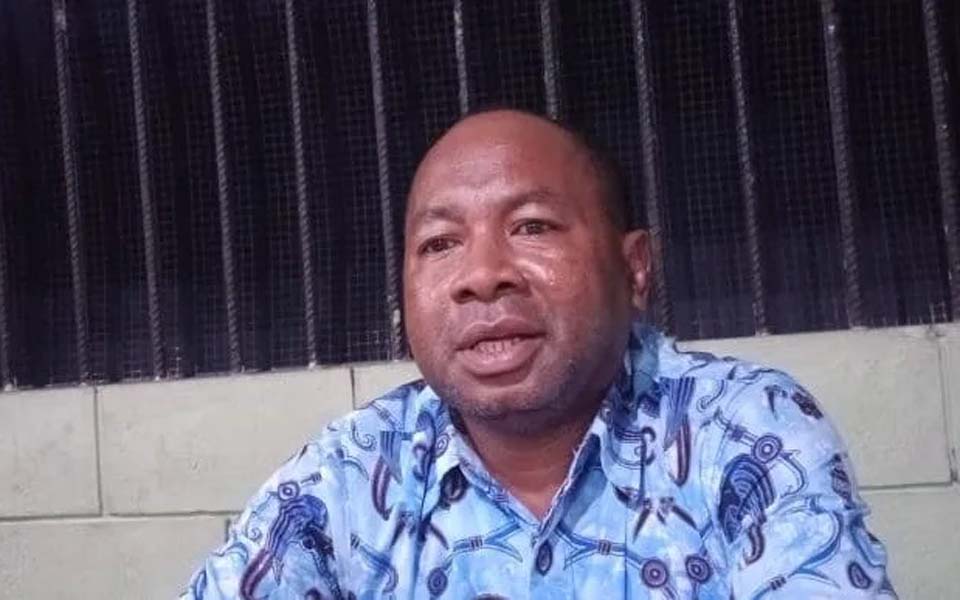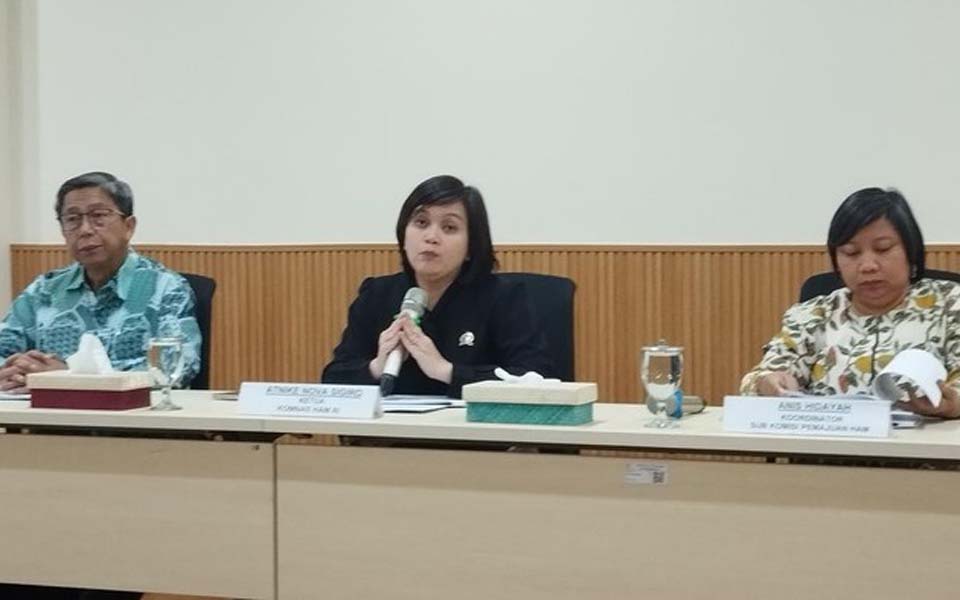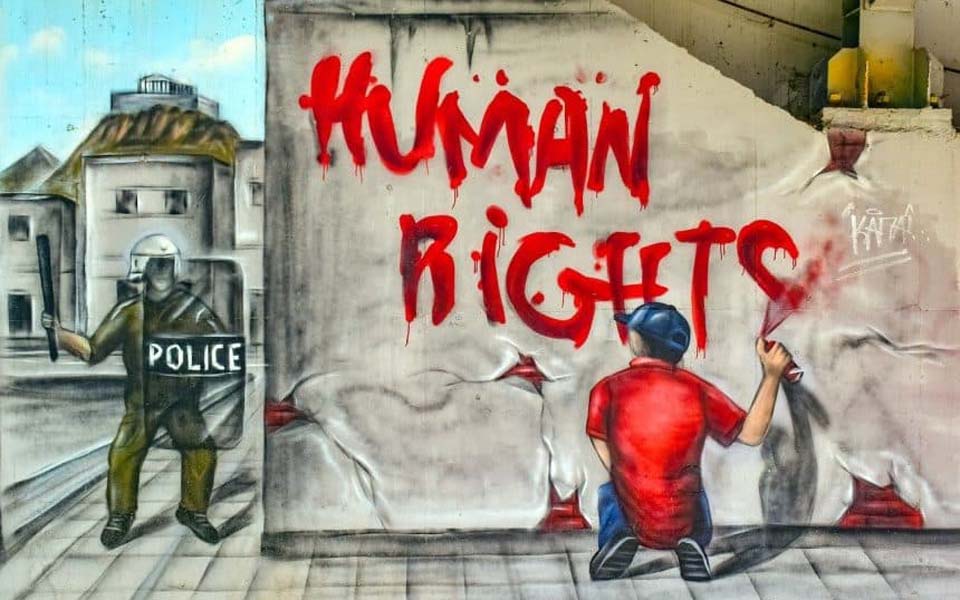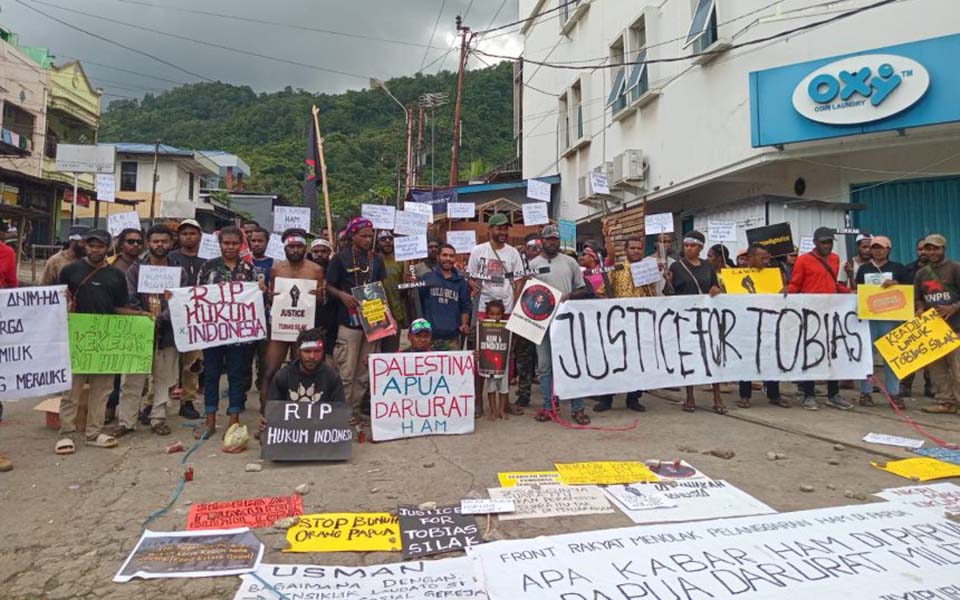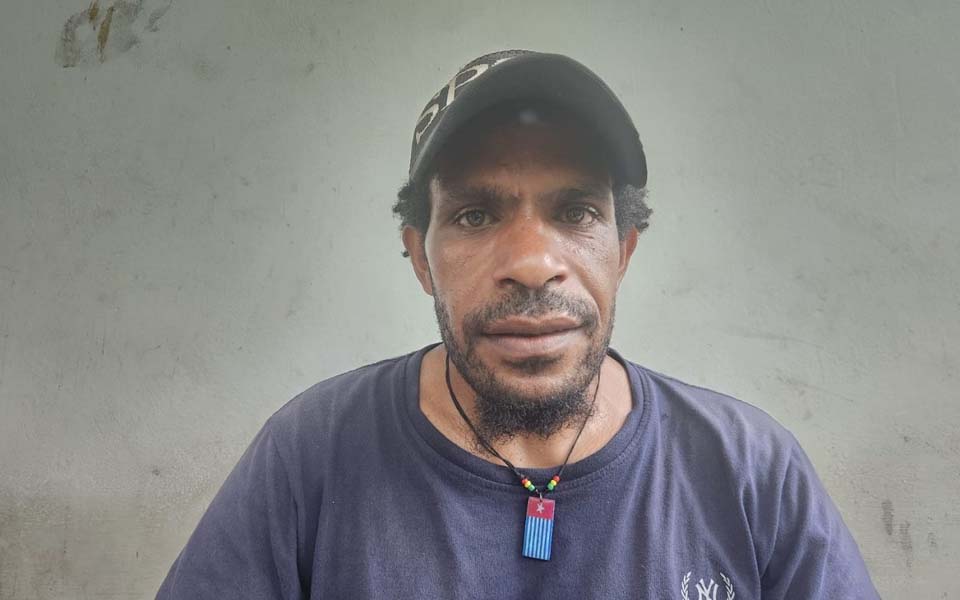Wahyu Setiawan, Valda Kustarini, Jakarta – Amnesty International believes that resolving cases of human rights violations in Papua is more important than creating a new province. Amnesty Executive Director Usman Hamid says that this is not the right solution for Papua at the moment.
“And it would be best if the government gave most of its attention to the problem of humanitarian issues first, the problem of past human rights [violations]. After all the president promised to resolve [human rights] cases in Papua, specifically the Paniai [shootings], also the president pledged to free Papuan political prisoners which according to Amnesty’s records there are now 22, including six people who are detained at the Mako Brimob [Mobile Brigade Command Headquarters], this is what we hope President Jokowi will pay attention to, to follow up on his own promises in 2005 on Papua”, said Hamid during a break in the launch of a book titled Grief from Nduga, in Jakarta on Wednesday October 30.
A plan to create a third province in Papua emerged after President Joko “Jokowi” Widodo received scores of Papuan representatives at the State Palace in September.
Hamid says that creating an additional province has the potential to give rise to more complex problems as was the case when West Papua province was created in 2003.
Speaking in the same vein as Hamid, the Nduga representative from the Papuan People’s Council (MRP), Louis Maday, also said that splitting up the territory will create new threats in the land of the Cendrawasih – as Papua is known – because it has the potential to create political frictions when the elite start fighting over positions in the new province.
“We believe that the state wants to get rid of temporary problems which are happening in Papua, glossing over all of the issues with decentralisation, the issue of conflicts, the issue of racism (by glossing it over)”, he asserted.
The Regional Autonomy Monitoring Committee (KPPOD) meanwhile says that creating a new province in Papua is not urgent. KPPOD Executive Director Robert Endi Jaweng suggests that it would be better if the government focuses on evaluating Special Autonomy (Otsus) in Papua first.
For example, said Jaweng, the human development index which is still below the national average.
Moreover, special autonomy in Papua will end in 2021. So, he said, before creating a new province, the government also needs to first review the achievements gained from the creation of West Papua province several years ago.
“The broad policies in Papua today, and new future initiatives must be placed in the context of broader Otsus, that first. Splitting the region up must be part of this. When there’s not yet been a clear evaluation of Otsus. What is our strategy like, what is our broad road map like, this hasn’t been formulated yet, then jumping straight to splitting the region”, Jaweng said to KBR.
Furthermore, continued Jaweng, there is a legal requirement which must be fulfilled by the government before splitting up the territory.
Under Law Number 23/2014 on Regional Autonomy, the government must complete two draft government regulations related to the broad design of regional regulations and the formation of regions. If this is not finished then the government cannot create another province.
Quite aside from the issue of regulations, said Jaweng, the government also has to consider the state budget because creating a new province requires large funds from the national (APBN) and regional budgets (APBD).
“Splitting up the territory will certainly consume a lot of money. The process of forming it, the funds absorbed from both the APBD as well as the APBN will be huge, then the second most important thing is after this. KPPOD studies show that all new regions usually bare quite a large [financial] burden in the first 7-10 years”, he said in short.
Earlier, Widodo and a number of ministers held a working visit to Papua. During the visit, the president was accompanied by Home Affairs Minister Tito Karnavian who sought to accommodate requests to create new regions in Papua and West Papua provinces.
Karnavian said there were two proposals for splitting up Papua, namely a South Papua province or a Papua Highlands province, although the proposal has attracted support and opposition.
[Translated by James Balowski. The original title of the article was “Pemekaran Papua, Amnesty Internasional: Lebih Penting Tuntaskan Kasus HAM!”.]








